‘Perfect storm’: Fears iconic Aussie brand David Jones could falter as stores close, cost-of-living crisis bites
An iconic century-old Aussie brand is facing a “perfect storm” of dire economic conditions and store closures that it may not be able to weather.
Retail
Don't miss out on the headlines from Retail. Followed categories will be added to My News.
A retail expert has warned that department store giant David Jones could “finally falter” amid a perfect storm of dire economic conditions and ongoing hardships being faced by the iconic Aussie brand.
Dozens of staff will be impacted after the company announced one of its flagship stores at the Eastland Shopping Centre in Ringwood, in Melbourne’s east, would close from January next year.
The move means only seven David Jones stores will be left standing in the Victorian capital.
Some have feared the latest move could sound the death knell for large-scale Australian department stores across the country amid a perfect storm of inflation, rising costs of living and poor foot traffic putting pressure on sales.
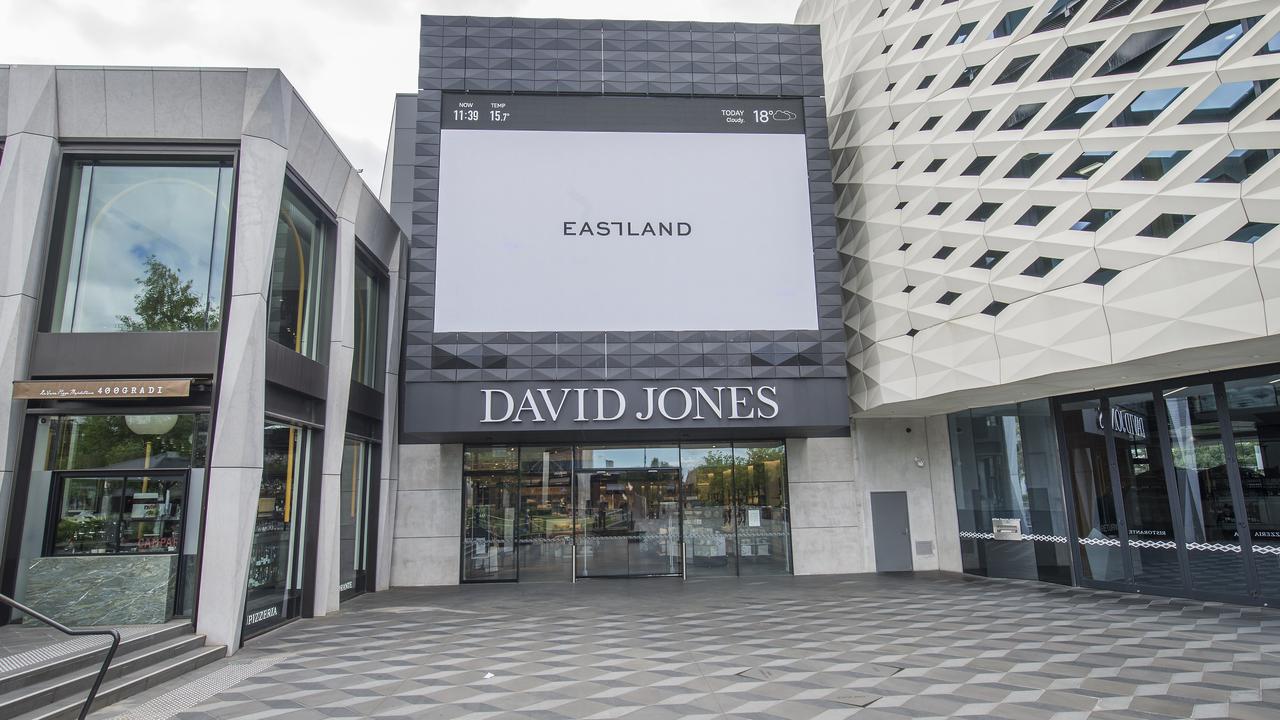
But retail marketing expert Louise Grimmer said such conversations were “cyclical” and department chains could “rise like a phoenix from the ashes”.
“This time around, though, the economic outlook is particularly gloomy, with huge pressures on household budgets and discretionary spend,” Dr Grimmer, a senior lecturer at the University of Tasmania, said.
“In addition, wages have stagnated in this country for a number of years … and at a really bad time with continuous rate rises in the lead-up to Christmas.
“These factors are perhaps a perfect storm that could see David Jones finally falter.”
There are 42 David Jones stores located across the country, employing more than 7500 people.

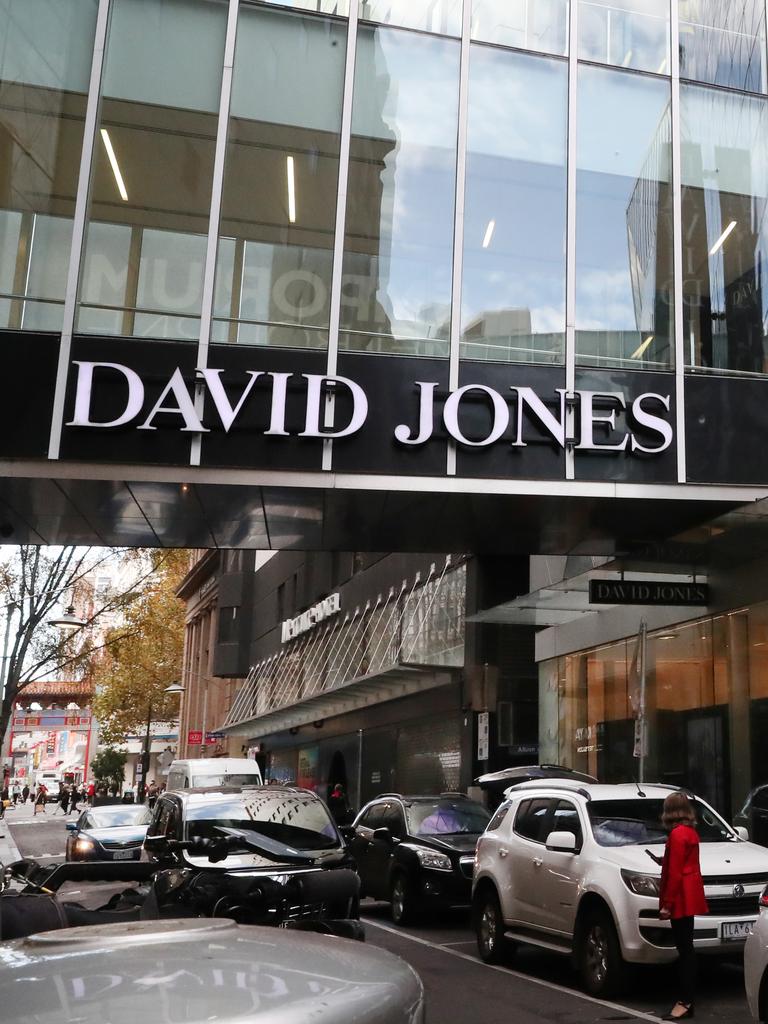
The announcement of Ringwood’s closure is the latest in a series of setbacks for the Australian-based chain.
In 2020, it closed its Fortitude Valley store in Brisbane after just three years of trading.
The company’s boutique Barangaroo store in Sydney was mothballed at the height of the Covid-19 pandemic in 2020 after opening in 2016.
Last year, the only David Jones store in Wellington, New Zealand, was closed.
Dr Grimmer said a solution was for the department chain to “get back to basics” – by improving service and refocusing itself as a “luxury business” instead of being “middle of the road”.
She pointed to “woeful” service in the David Jones department stores across the country and how it struggled to differentiate from brands like Myer or even Kmart.
“Somewhere along the way, the brand has lost its meaning – it’s now trying to be all things to all people – offering top-end products as well as those more affordable options,” Dr Grimmer said.
“(If) David Jones are going to continue to offer expensive, high-end luxury products, they must have the store experience, the online experience and the customer service to match.
“At present all these elements are out of kilter.
“Many of the competitors in the form of specialty stores are winning the race – both in-store and online.”
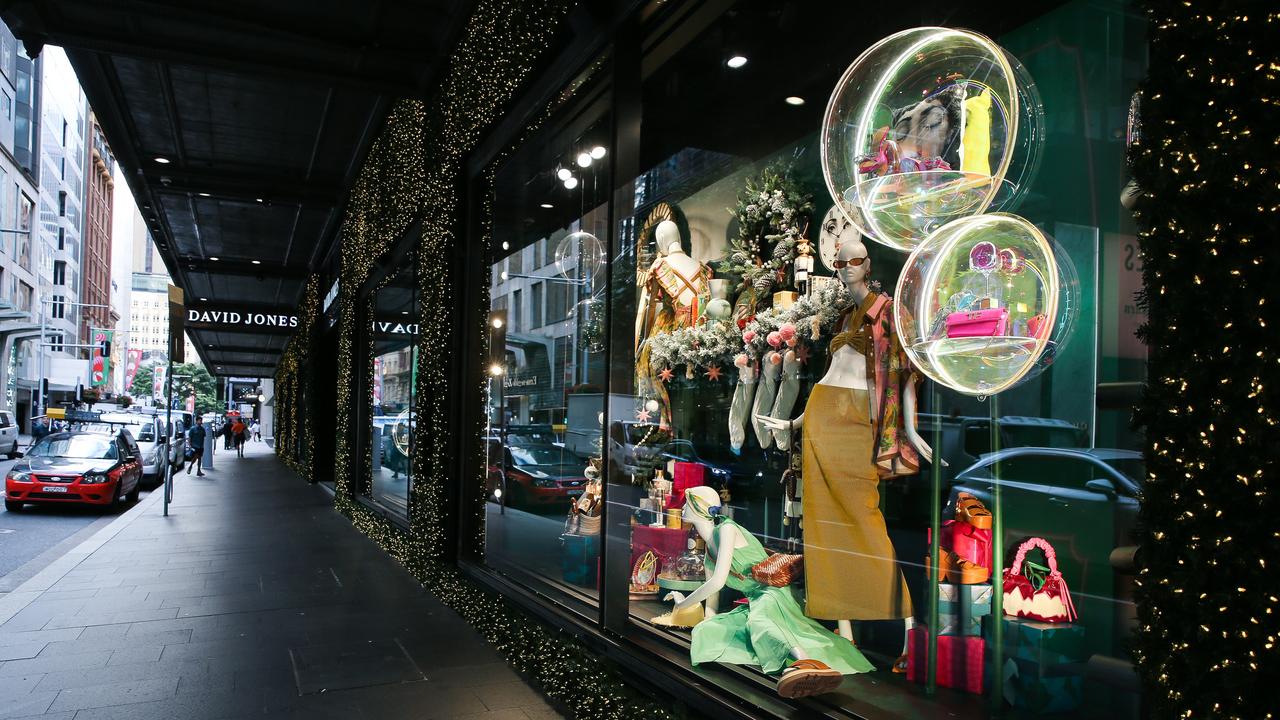
In a statement, a David Jones spokeswoman reiterated the company “was focused on delivering world-class products and experiences … both online and in-store as Australia’s leading omnichannel retailer”.
“Key to delivering this experience is our ongoing program of retail network optimisation, which includes refurbishing our stores, right-sizing and, where necessary, consolidation of our footprint,” the spokeswoman said.
The spokeswoman confirmed the Eastland store would be shut from January.
“Our strategy was shared widely with our team members and customers in January 2023, and we will continue to provide updates as we evolve and grow our business,” she said.
The spokeswoman did not answer questions regarding the number of stores closed across Australia.
She also did not state how many staff would be impacted by the Eastland store closure but stated: “We are going through a consultative process and 97 per cent of our team members have redeployment opportunities.
“We look forward to welcoming our Eastland customers online and to our other nearby store locations.”
The 185-year-old Aussie department store brand was purchased for a staggering $2.14bn by South Africa’s Woolworths Holding Ltd (WHL) in 2014.
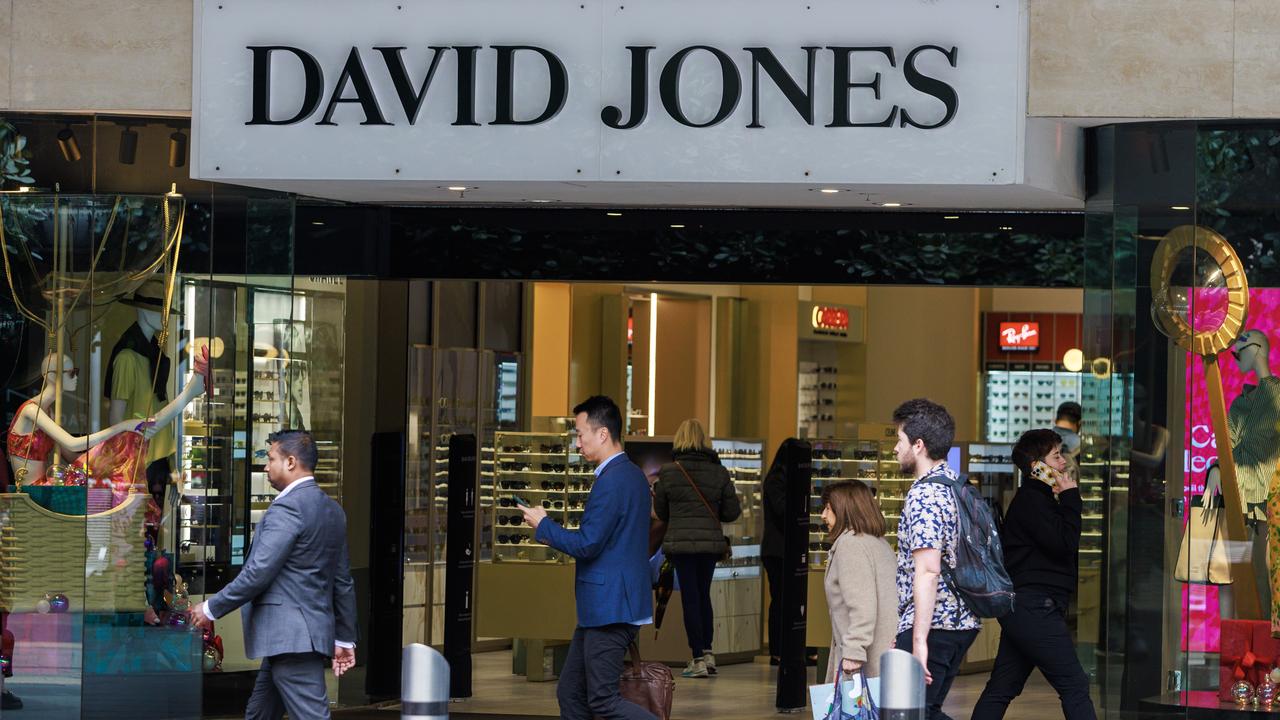
But last year it was sold to Sydney private equity firm Anchorage Capital Partners.
David Jones’ iconic Bourke St store in Melbourne – worth about $250m – was not included in the deal.
“This new partnership has added renewed vigour to the world’s oldest continuously operating department store, and we’re excited to seize the momentum and take our rightful place as Australia’s most iconic shopping destination,” David Jones chief Scott Fyfe said in March last year.
“With the support and financial commitment of Anchorage, we’ve secured the right investment to lead Australia’s retail industry into the future.”
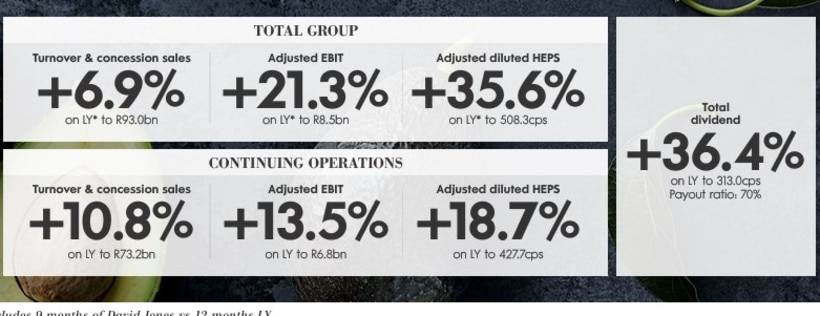
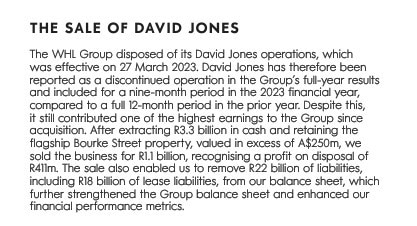
In its 2023 annual report, the WHL Group stated David Jones contributed one of the highest earnings to the Group since its 2014 acquisition despite the sale.
The report states the company extracted $R3.3bn ($A267m) in cash and retained the $A250m Bourke St property.
David Jones was sold for $R1.1bn ($A89m), the document states.
“The sale also enabled us to remove $R22bn ($A1.7bn) of liabilities, including $R18bn ($A1.47bn) of lease liabilities, from our balance sheet, which further strengthened the Group balance sheet and enhanced our financial performance metrics,” WHL Group’s interim chief financial officer Zaid Manjra wrote.
More Coverage
Originally published as ‘Perfect storm’: Fears iconic Aussie brand David Jones could falter as stores close, cost-of-living crisis bites








